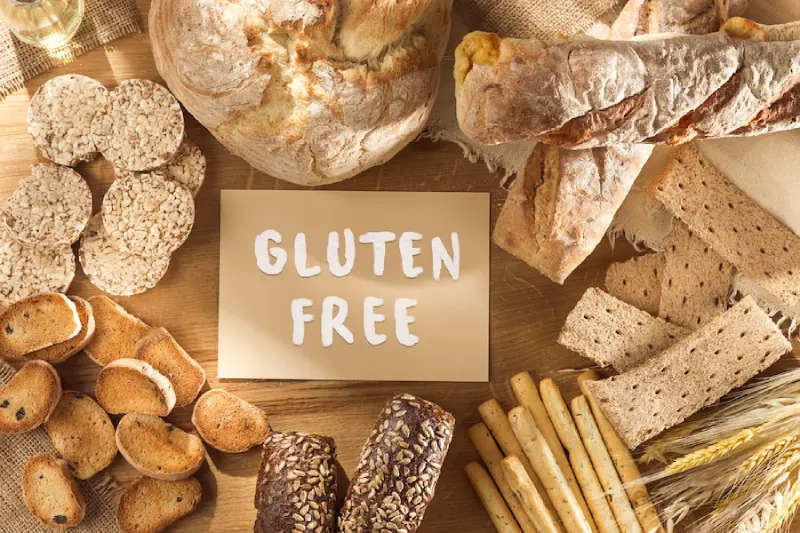Living a gluten-free lifestyle has become increasingly common, whether due to celiac disease, gluten sensitivity, or personal health choices. While the benefits of eliminating gluten can be life-changing for many, maintaining this diet comes with its own set of challenges. From navigating social situations to finding safe food options, the gluten-free journey requires planning, awareness, and creativity. This article offers practical advice and solutions to help you thrive while living gluten-free.
Understanding the Basics of a Gluten-Free Diet
Gluten is a protein found in wheat, barley, rye, and their derivatives. For those with celiac disease, even trace amounts of gluten can trigger an immune response that damages the small intestine. Others may experience discomfort, bloating, or fatigue due to gluten sensitivity. A gluten-free diet involves avoiding all foods and products containing these grains, which means scrutinizing labels, asking questions at restaurants, and being mindful of cross-contamination.
While the diet may seem restrictive at first, it’s important to focus on the abundance of naturally gluten-free foods, such as fruits, vegetables, lean proteins, dairy, and grains like quinoa and rice. With the right mindset and resources, living gluten-free can be both manageable and enjoyable.
Overcoming Social and Emotional Challenges
One of the most significant hurdles of a gluten-free lifestyle is navigating social situations. Dining out, attending parties, or even sharing meals with family can feel daunting. The fear of being “different” or inconveniencing others can lead to feelings of isolation. However, with a little preparation, you can confidently participate in social events without compromising your diet.
For instance, when dining out, research restaurants in advance and call ahead to inquire about gluten-free options. Many establishments now cater to gluten-free diets, and some even have dedicated menus. At social gatherings, consider bringing a dish to share, ensuring there’s something safe for you to eat. Embracing a positive mindset and focusing on what you can eat, rather than what you can’t, can make a world of difference.
Great Without Gluten: Finding Joy in Your Diet
Transitioning to a gluten-free lifestyle doesn’t mean sacrificing flavor or enjoyment. In fact, many people discover a newfound appreciation for wholesome, nutrient-dense foods. The key is to explore new recipes, experiment with gluten-free alternatives, and find brands that align with your tastes and values.
For example, the “Great Without Gluten” movement has inspired countless individuals to share their favorite gluten-free recipes and tips online. From fluffy gluten-free pancakes to decadent chocolate cakes, there’s no shortage of delicious options to try. By embracing creativity in the kitchen, you can turn your gluten-free diet into a culinary adventure.
Practical Tips for Everyday Life
Read Labels Carefully: Gluten can hide in unexpected places, such as sauces, condiments, and even cosmetics. Always check ingredient lists and look for certified gluten-free labels.
Stock Your Pantry: Keep your kitchen stocked with gluten-free staples like rice, quinoa, gluten-free pasta, and almond flour. Having these items on hand makes meal prep easier and reduces the temptation to reach for unsafe options.
Plan Ahead: Whether you’re traveling or attending an event, planning ahead is crucial. Pack gluten-free snacks, research safe dining options, and communicate your dietary needs to hosts or restaurant staff.
Educate Friends and Family: Help your loved ones understand your dietary requirements by explaining why gluten-free is important to you. This can foster empathy and make social situations more comfortable.
Join a Community: Connecting with others who follow a gluten-free lifestyle can provide valuable support and inspiration. Online forums, social media groups, and local meetups are great places to share experiences and exchange tips.
Addressing Common Misconceptions
Despite the growing awareness of gluten-free diets, misconceptions still abound. Some people assume it’s a fad or a weight-loss strategy, while others believe gluten-free foods are inherently healthier. It’s important to clarify that a gluten-free diet is a medical necessity for some and a personal choice for others. Additionally, not all gluten-free products are nutritious—many are highly processed and lack essential nutrients.
To maintain a balanced diet, focus on whole, unprocessed foods and use gluten-free products as occasional treats rather than staples.
Embracing the Gluten-Free Lifestyle
Living gluten-free may come with challenges, but it also offers an opportunity to prioritize your health and well-being. By staying informed, planning ahead, and adopting a positive mindset, you can overcome obstacles and enjoy a fulfilling gluten-free lifestyle. Remember, you’re not alone—millions of people around the world are thriving on this diet, and with the right tools and support, you can too.
Whether you’re new to the gluten-free lifestyle or a seasoned pro, the journey is about progress, not perfection. Celebrate your successes, learn from setbacks, and continue exploring the delicious possibilities of living gluten-free.




